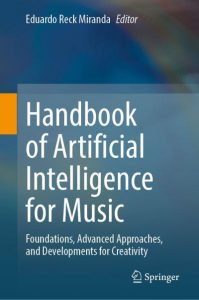UKRI Centre for Doctoral Training in Artificial Intelligence and Music (AIM), Queen Mary University of London
https://www.aim.qmul.ac.uk/
Up to 12 fully-funded PhD studentships to start September 2020
Covers fees and a stipend for four years
Application deadline: 31 January 2020
Why apply to the AIM Programme?
- 4-year fully-funded PhD studentships available
- Extensive choice of projects, drawing on a supervisory team of over 30 academics
- Access to cutting-edge facilities and expertise in artificial intelligence (AI) and music/audio technology
- Comprehensive technical training at the intersection of AI and music through a personalized programme
- Partnerships with over 20 companies and cultural institutions in the music, audio and creative sectors
More information on the AIM Programme can be found at: https://www.aim.qmul.ac.uk/
Programme structure
Our Centre for Doctoral Training (CDT) offers a four year training programme where students will carry out a research project in the intersection of AI and music, supported by taught specialist modules, industrial placements, and skills training. Find out more about the programme structure at: http://www.aim.qmul.ac.uk/about/
Who can apply?
We are on the lookout for the best and brightest students interested in the intersection of music/audio technology and AI. Successful applicants will have the following profile:
- Hold or be completing a Masters degree at distinction or first class level, or equivalent, in Computer Science, Electronic Engineering, Music/Audio Technology, Physics, Mathematics, or Psychology. In exceptional circumstances we accept applicants with a first class Bachelors degree who do not hold a Masters degree, provided that applicants can provide evidence of equivalent research experience, industry experience, or specialist training.
- Programming skills are strongly desirable; however we do not consider this to be an essential criterion if candidates have complementary strengths.
- Formal music training is desirable, but not a prerequisite.
For this round of applications we are offering a number of scholarships to applicants who are ordinarily resident in the UK (i.e. have lived and studied/worked in the UK at least the last three years – this includes EU nationals) and a smaller number of scholarships to international students.
Funding
We have a large number of 4-year PhD studentships available for students starting in September 2020 which will cover the cost of tuition fees and will provide an annual tax-free stipend (£17,009 in 2019/20). The CDT will also provide funding for conference travel, equipment, and for attending other CDT-related events.
The AIM programme also welcomes applications from students who have sponsorship for PhD study from numerous international funding agencies and also accepts self-funded students. For more information on external PhD studentships and self-funded please visit http://www.aim.qmul.ac.uk/apply .
Apply Now
Information on applications and PhD topics can be found at: http://www.aim.qmul.ac.uk/apply
Application deadline: 31 January 2020
Application deadline for China Scholarship Council applicants only: 12 January 2020
For further information on eligibility, funding and the application process please visit our website. Please email any questions to aim-enquiries@qmul.ac.uk
 The “Handbook of Artificial Intelligence for Music” is now available online, with a printed version due on 3rd August. The handbook, published by Springer and edited by Eduardo Miranda, covers 34 chapters and over 1,000 pages, providing a comprehensive coverage of the latest advances in research into enabling machines to listen to and compose new music.
The “Handbook of Artificial Intelligence for Music” is now available online, with a printed version due on 3rd August. The handbook, published by Springer and edited by Eduardo Miranda, covers 34 chapters and over 1,000 pages, providing a comprehensive coverage of the latest advances in research into enabling machines to listen to and compose new music.